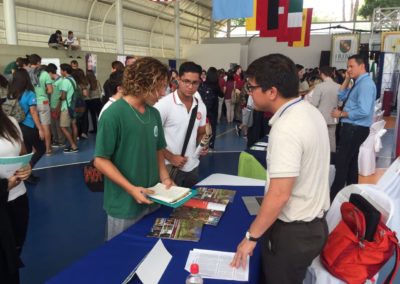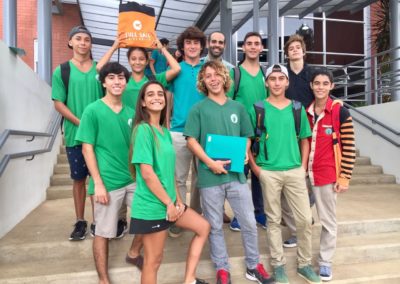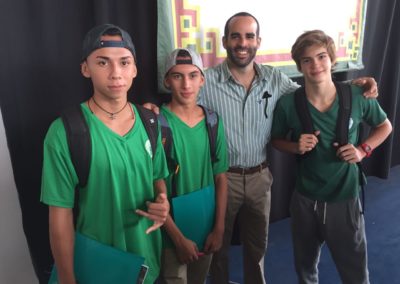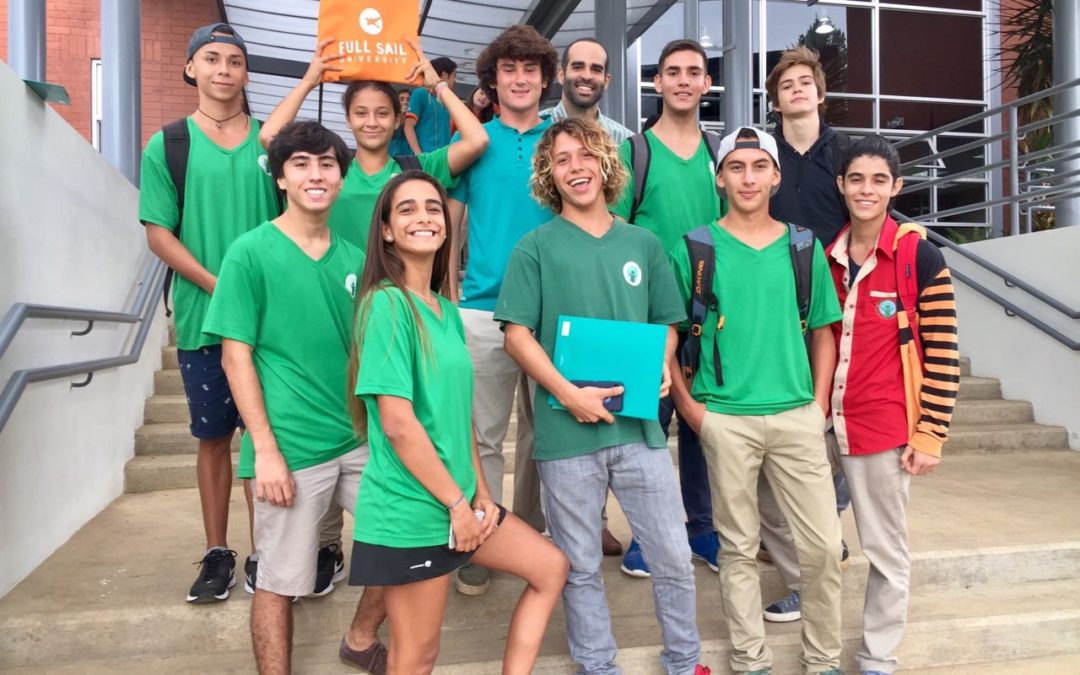
by Stuart Millar, IB coordinator | May 23, 2017
On 22nd May 2017, our 10th and 11th-grade students attended the Costa Rica International College Fair in Curridabat to visit with representatives from a variety of universities from North and Latin America. This was an opportunity to promote themselves and ask questions as they research their postsecondary education options.
A good communicator knows what their message is. As they prepared for the college fair our students were asked to reflect on “Who am I?” and “What do I want to convey about myself?” Students prepared a written personal statement. They also practiced asking and answering questions verbally, remembering that oral communication is clearest and most effective when we maintain eye contact, speak clearly, don’t fidget, show we are listening, and are dressed appropriately.
The college fair was a very successful event. Our students represented Futuro Verde very well and it was exciting to see them plan the next exciting chapter of their lives.

by Stuart Millar, IB coordinator | May 23, 2017
El 22 de mayo de 2017, nuestros estudiantes de 10° y 11° grados asistieron a la Feria Universitaria Internacional de Costa Rica en Curridabat para ponerse en contacto con representantes de diversas universidades de América del Norte y América Latina. Esta fue una oportunidad para promocionarse y hacer preguntas mientras investigan sus opciones de educación postsecundaria. Un buen comunicador sabe cuál es su mensaje. Mientras se preparaban para la feria universitaria, a nuestros estudiantes se les pidió que reflexionaran sobre “¿Quién soy yo?” Y “¿Qué quiero transmitir sobre mí?” Los estudiantes prepararon una declaración personal escrita. También practicaron preguntar y contestar preguntas verbalmente, recordando que la comunicación oral es más clara y efectiva cuando mantenemos contacto visual, hablamos con claridad, mantenemos la calma, mostramos que estamos escuchando y estamos vestidos apropiadamente. La feria universitaria fue un evento muy exitoso. Nuestros estudiantes representaron a Futuro Verde muy bien y fue emocionante verlos planear el próximo capítulo de sus vidas.
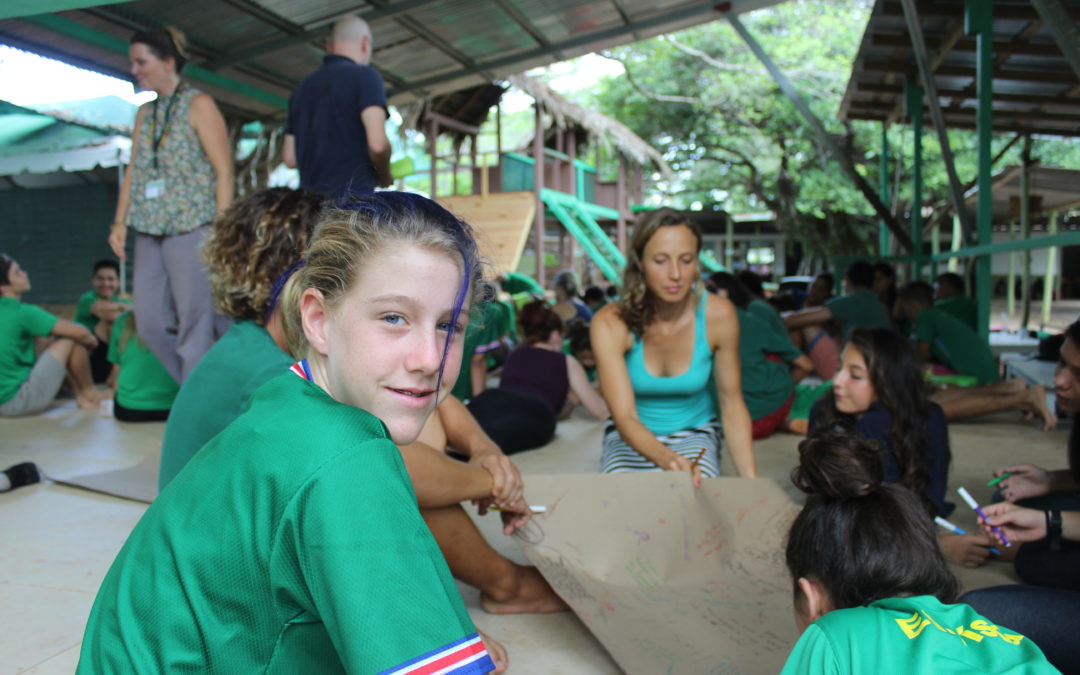
by Stuart Millar, IB coordinator | May 23, 2017

Futuro Verde se encuentra en la última etapa de nuestra solicitud para ofrecer el Programa del Diploma del BI. El 29 y 30 de mayo recibiremos la visita de dos representantes del BI* para una visita de verificación. Durante los dos días entrevistarán a todos los futuros profesores del BI*, al coordinador (diseñado) del programa, a la directora, a padres de futuros estudiantes, a estudiantes y miembros de la junta. Asimismo, la visita incluirá una gira por el campus actual. Al final de la visita, compartirán sus observaciones de manera oral con la directora y el coordinador (diseñado) del BI*.
The visit will also include a tour of school facilities. At the end of the visit, the inspectors will give their findings verbally to the head of school and IB* coordinator (designate). Thank you to all board members, staff, parents, and students for all the support they have given as we pursue authorization as an IB* World School.
*Centro Educativo Futuro Verde es un colegio candidato* al Programa del Diploma. Este colegio está solicitando autorización como un Colegio del Mundo BI. Estos colegios comparten una filosofía – el compromiso con una educación internacional de alta calidad que, según Centro Educativo Futuro Verde, es importante para nuestros estudiantes. Solamente las escuelas autorizadas por el BI pueden ofrecer un programa académico del BI: Años en Primaria, Años Intermedios, Programa del Diploma o el Programa Vocacional. Ser colegio candidato no garantiza que la solicitud sea aprobada. Para más información sobre el BI y sus programas sigan el siguiente enlace: http://www.ibo.org

by Stuart Millar, IB coordinator | May 23, 2017

Futuro Verde is at the final stage of the application for authorization to offer the IB* Diploma Program. On May 29th and 30th we will be hosting two visitors from IB* as they conduct the verification visit. Over the two days, there will be interviews conducted with all our prospective IB* teachers, the diploma program coordinator (designate), head of school, parents of prospective IB* students, students, and board members. The visit will also include a tour of school facilities. At the end of the visit, the inspectors will give their findings verbally to the head of school and IB* coordinator (designate). Thank you to all board members, staff, parents, and students for all the support they have given as we pursue authorization as an IB* World School.
*Centro Educativo Futuro Verde is a candidate school* for the Diploma Programme. This school is pursuing authorization as an IB World School. These are schools that share a common philosophy- a commitment to high quality, challenging, international education that Centro Educativo Futuro Verde believes is important for our students. Only schools authorized by the IB Organization can offer any of its four academic programmes: the Primary Years Programme (PYP), the Middle Years Programme (MYP), the Diploma Programme or the Career-related Programme (CP). Candidate status gives no guarantee that authorization will be granted. For further information about the IB and its programmes, visit http://www.ibo.org
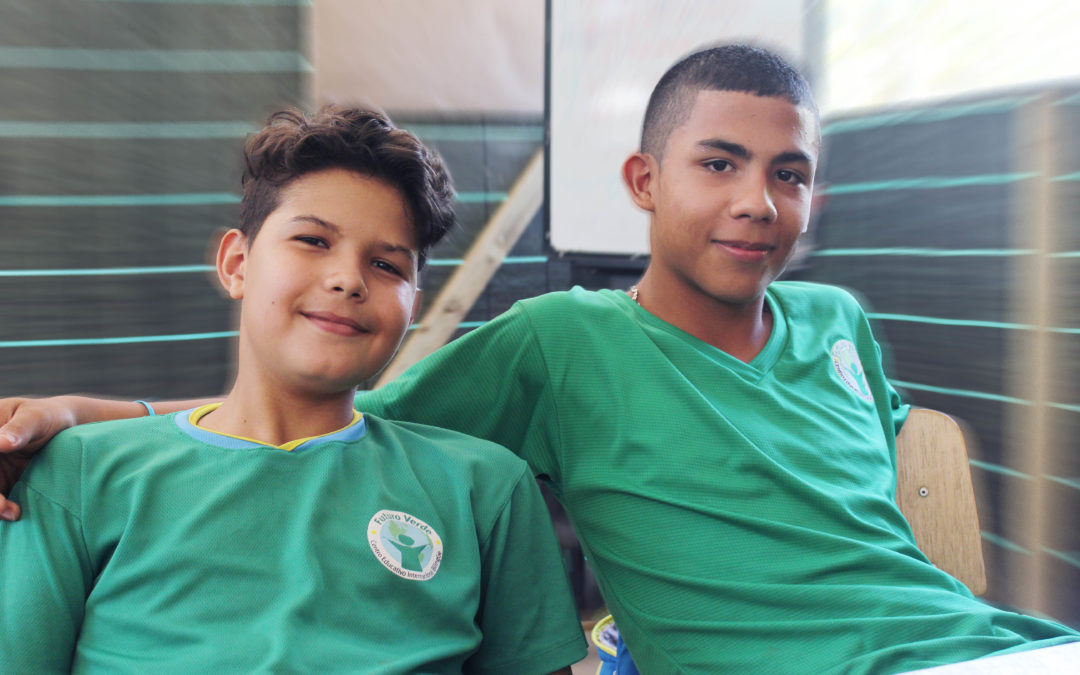
by Stuart Millar, IB coordinator | Apr 26, 2017

“Good judgment is learned, but you can’t learn it if you don’t have the necessary hardware.” Dr. Yurgelun-Todd
“But I’m old enough to make my own decisions!” is something that parents often hear from their teenagers. Unfortunately for them, science doesn’t necessarily support our students’ claims.
Well developed sections of a teenager’s brain include the amygdala, responsible for immediate actions and aggression, and the nucleus accumbens, the area that looks for pleasure and reward (the more, the better!). The prefrontal cortex in the frontal lobe – responsible for impulse control, evaluating, understanding cause and effect, forming judgments and controlling emotions – is the least developed section of the brain, not maturing until our 20s. There, in a nutshell, is the scientific reason for all the stereotypes that teenagers are judged by and sometimes live up to.
As a result, teenagers are more likely to: act on impulse, misunderstand social cues, indulge in risky behavior, and get involved in accidents and fights. They are less likely to think before they act, consider consequences of their actions, or adapt possible dangerous behaviors.
Molly Edmonds, in her article Teenage Brain Development, sums it up in a humorous way.
“Think of the teenage brain as an entertainment center that hasn’t been fully hooked up. There are loose wires, so that the speaker system isn’t working with the DVD player, which in turn hasn’t been formatted to work with the television yet. And to top it all off, the remote control hasn’t even arrived!”
My fellow parents, guardians, teachers, and students too. Hold in there! Some weird decisions, emotions and lack of impulse control are a normal part of the teenage years and students’ development. Knowing this will make your life easier and might make you more accepting of your teenager’s outbursts and shenanigans. It’s normal, it will end, and we will all come out the other side.
References and further reading:
Talukder, Gargi. “Decision-making Is Still a Work in Progress for Teenagers.” Brain Connection.
Edmonds, Molly. “Are Teenage Brains Really Different from Adult Brains?” HowStuffWorks Science. HowStuffWorks, 26 Aug. 2008.
Aacap. “Teen Brain: Behavior, Problem Solving, and Decision Making.” American Academy of Child and Adolescent Psychiatry.


